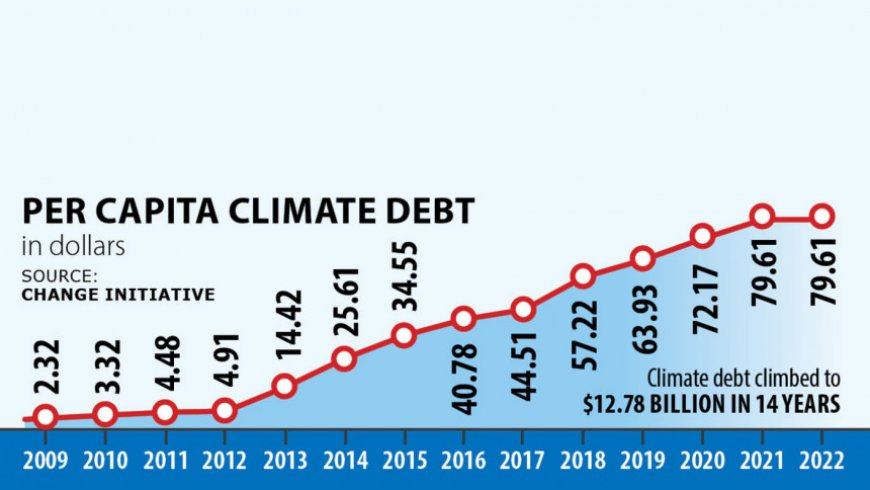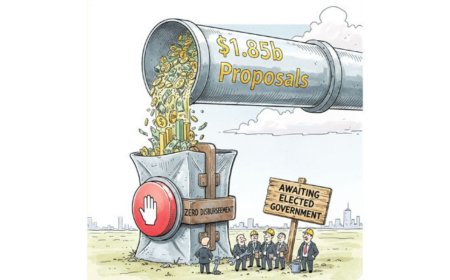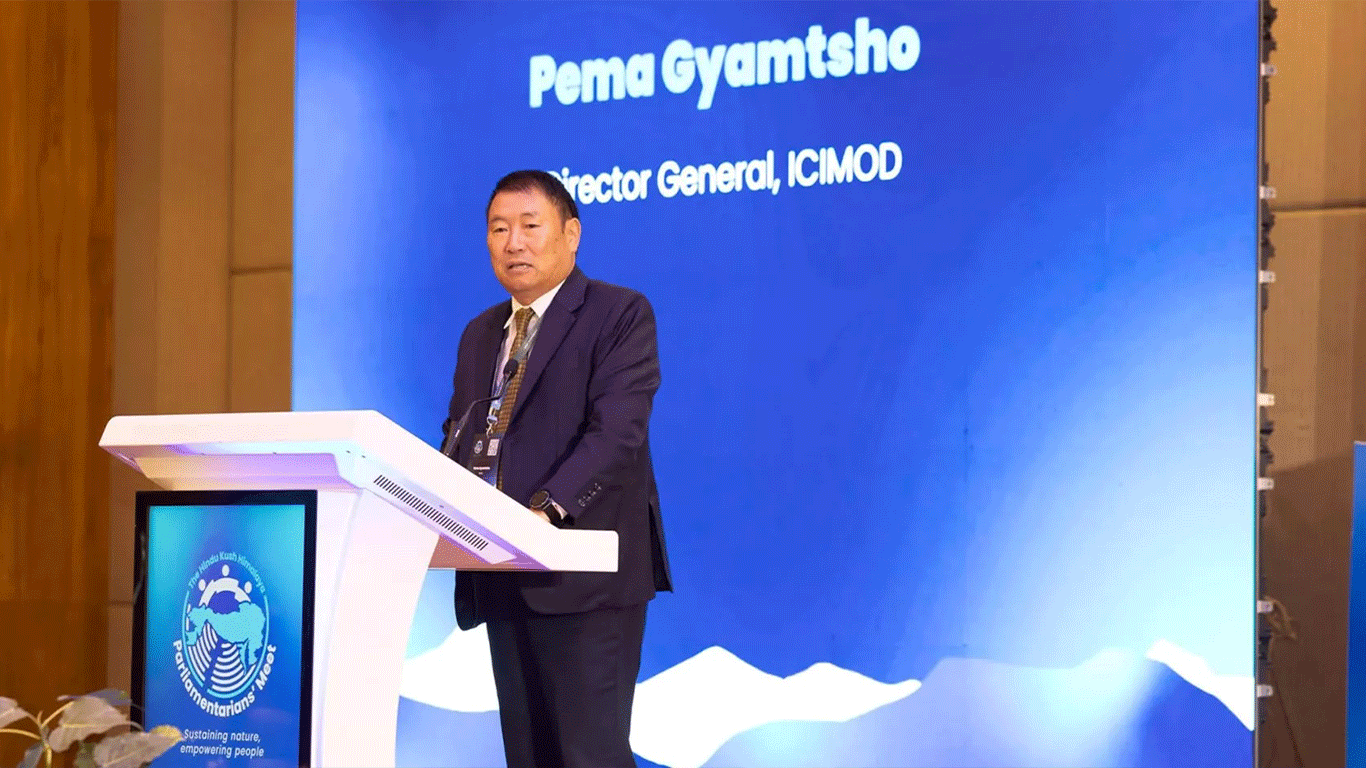Bangladesh's climate debt continues to rise
The country aims to seek increased funding at COP-29.

As global leaders meet in Baku, Azerbaijan, for the 29th climate conference to discuss climate finance, vulnerable countries like Bangladesh are calling for increased, debt-free funding. The per capita climate debt in Bangladesh has reached $80 (about Tk 9,500), accumulated over 14 years from 2009 to 2022 as Bangladesh financed various climate-related projects. During this time, Bangladesh accumulated $12.78 billion in climate debt while receiving only $268 million in grants from funds like the Green Climate Fund and the Adaptation Fund, according to a report by Change Initiative.
The report warns that Bangladesh's high per capita climate debt increases the risk of a "climate debt trap," especially since wealthier nations, responsible for most emissions, have not fulfilled their financial promises. At COP-29, least-developed countries (LDCs) like Bangladesh will advocate for 100 percent grant-based climate adaptation funding by 2025 and seek the establishment of debt relief mechanisms.
In 2009, Bangladesh launched the Bangladesh Climate Change Trust Fund (BCCTF), funded domestically, to reduce reliance on international aid for climate adaptation. With Tk 700 crore annually, BCCTF has supported over 700 projects, including climate-resilient housing and early warning systems, to empower communities. Yet, despite these efforts, Bangladesh is burdened by the "climate debt trap" as wealthy nations fall short of their commitments.
Bangladesh, responsible for just 0.56 percent of global greenhouse emissions, ranked seventh in the long-term climate risk index and faces severe impacts from floods, cyclones, and salinity that disrupt agriculture, water resources, and coastal areas. In 2022, Bangladesh introduced a National Action Plan (NAP) for climate change (2023-2050), outlining $230 billion in funding needs across 113 key climate interventions nationwide. Current government spending on climate adaptation is about 6–7 percent of the annual budget, with 75 percent from domestic sources, but experts suggest adaptation efforts require seven times this investment.
Since the COP-15 in Copenhagen, where wealthy nations pledged to mobilize $100 billion annually by 2020, the commitment remains largely unmet, putting LDCs like Bangladesh at risk of incurring debt to finance critical climate resilience projects. Uncertainty in fund allocation raises further concerns that resources may not reach the countries most in need.
At COP-29, Bangladesh and other LDCs will push for additional, non-debt-creating climate finance, with an emphasis on public funds from developed nations. Syeda Rizwana Hasan, adviser to Bangladesh's Ministry of Environment, Forest and Climate Change, stated that Bangladesh will advocate for the doubling of adaptation funding by 2025 and insist on the operationalization of the loss and damage fund. This fund, established at COP-28 with an initial $792 million pledge, is not yet fully functional, and Bangladesh will urge simplified access and regular replenishment.
Additionally, Bangladesh will stress the global commitment to limit temperature rise to 1.5 degrees Celsius above pre-industrial levels by 2100 to mitigate severe climate impacts. Rizwana Hasan, who will arrive in Baku on November 17, confirmed Bangladesh’s advocacy for urgent action at COP-29, labeled as the “Finance COP.”
Chief Adviser Muhammad Yunus will lead Bangladesh's delegation, delivering a speech on November 13. The conference is expected to establish a new post-2025 financial target, building on the original $100 billion pledge. The United Nations Framework Convention on Climate Change (UNFCCC) estimates that developing countries will need between $5.8 and $5.9 trillion for mitigation by 2030 and between $215 and $387 billion for adaptation.
Bangladesh will continue to advocate for the rapid deployment of these funds at COP-29, facilitating timely climate adaptation and resilience-building projects. The Ministry of Environment, Forest and Climate Change will send a 28-member delegation, including officials, departmental representatives, and climate experts.
To support engagement at COP-29, Bangladesh has set up a 100-square-meter pavilion for bilateral meetings and 13 side events. This pavilion will serve as a knowledge-sharing hub for stakeholders, including government officials, NGOs, and youth organizations, fostering discussion on pressing climate issues.
What's Your Reaction?





















































































